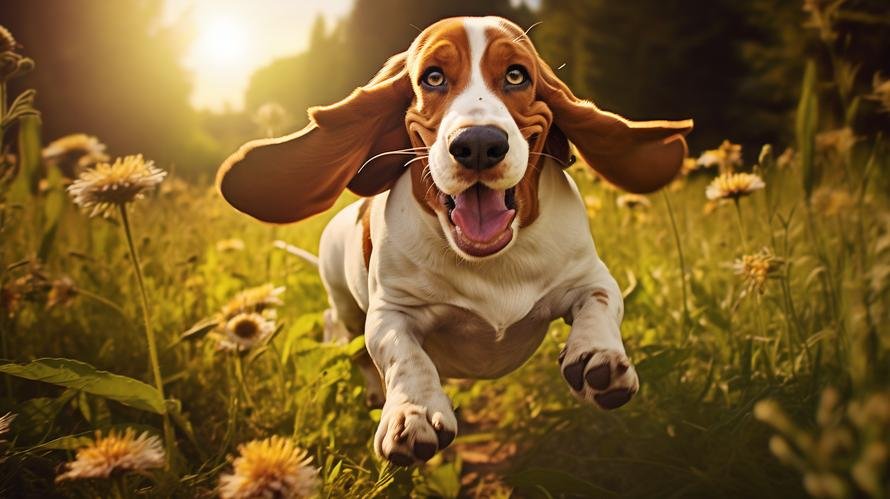Did you know that Basset Hounds have the second-best sense of smell of all dog breeds, surpassed only by the Bloodhound? That’s right, these short-legged, long-eared canines have a nose that can track a scent trail over a decade old! But does this mean keeping a Basset Hound is a high-maintenance affair? Let’s find out.
Basset Hounds belong to a class of dogs known as scent hounds, bred because of their incredible sense of smell. Originating from France, they were useful in hunting rabbits and small game. This led to some of their most distinctive characteristics: their long ears that help in trapping scent, droopy eyes, and stout bodies. Today, Basset Hounds charm their way into households with their endearing facial expressions and leisurely disposition.
Now, if you’re exploring having one as a pet, you might be wondering: are Basset Hounds a handful? Do they demand a lot of time, energy, and resources? To answer these questions, let’s take a deep dive into their unique traits, behaviors, and needs.
First and foremost, Basset Hounds are incredibly friendly. They form strong attachments with their owners, making them ideal family pets. Contrary to their hunting roots, they get along very well with other dogs and even cats. The friendly temperament of Basset Hounds reduces the maintenance required in terms of social training. Although remember, all dogs behave better when socialized properly while young.
Now, let’s talk about their exercise needs. Basset Hounds, in general, are quite laid back – some would say, borderline lazy! They love their nap times and aren’t the biggest fan of strenuous activities. A daily walk around the neighborhood will suffice for their physical needs. Unlike high-energy breeds like Labradors or Siberian Huskies, Basset Hounds require much less exercise, making them relatively low maintenance on this front.
On food and nutrition, Basset Hounds aren’t too picky. A balanced diet is all they need: a mix of good quality, vet-approved dog food, safe fruits, and vegetables. However, owing to their tendency to gain weight, portion control is crucial. Overweight Basset Hounds can suffer from health issues, such as joint problems and heart diseases, so be mindful of their diet and caloric intake.
Basset Hounds come with a dense, short coat that sheds moderately. Weekly brushing is recommended to remove loose hair and maintain their coat looking its best. However, their signature long ears require particular attention. These can be prone to infections if not kept clean and dry due to poor air circulation. Regular checking and cleaning (with vet-approved solutions) can prevent these potential issues, making them a bit more maintenance than a short-eared breed.
Training a Basset Hound may require a pinch more patience. Bassets have a mind of their own, and their excellent scent tracking abilities can mean they get easily distracted. Consistent, positive reinforcement training methods work best with them. Despite this minor hurdle, don’t let this discourage you! Basset Hounds are intelligent and capable learners when given the right motivation (read: treats!).
Let’s talk about health. In general, Basset Hounds are a robust breed. But like all breeds, they are prone to specific health conditions like obesity, hip dysplasia, and ear infections. Regular vet visits, a balanced diet, and proper grooming go a long way in ensuring your Basset is healthy and happy. So, while not particularly high maintenance, they definitely require attentive and proactive care.
In summary, are Basset Hounds high maintenance dogs? Not necessarily. They can be easily managed with a moderate and consistent care routine that every responsible pet owner should be able to provide. However, their unique physical characteristics and personality quirks do demand some additional attention, mainly relating to their ears and training behaviors.
Having a Basset Hound as a pet comes with the delightful reward of their loveable disposition, loyalty, and companionship, which more than compensates for their maintenance needs. Remember, owning a pet, regardless of the breed, always comes with the responsibility to provide the best care possible to ensure they lead healthy, happy lives. In the end, isn’t the love and companionship we get back from our four-legged friends worth every bit of our time and effort? I believe that’s an absolute yes!



